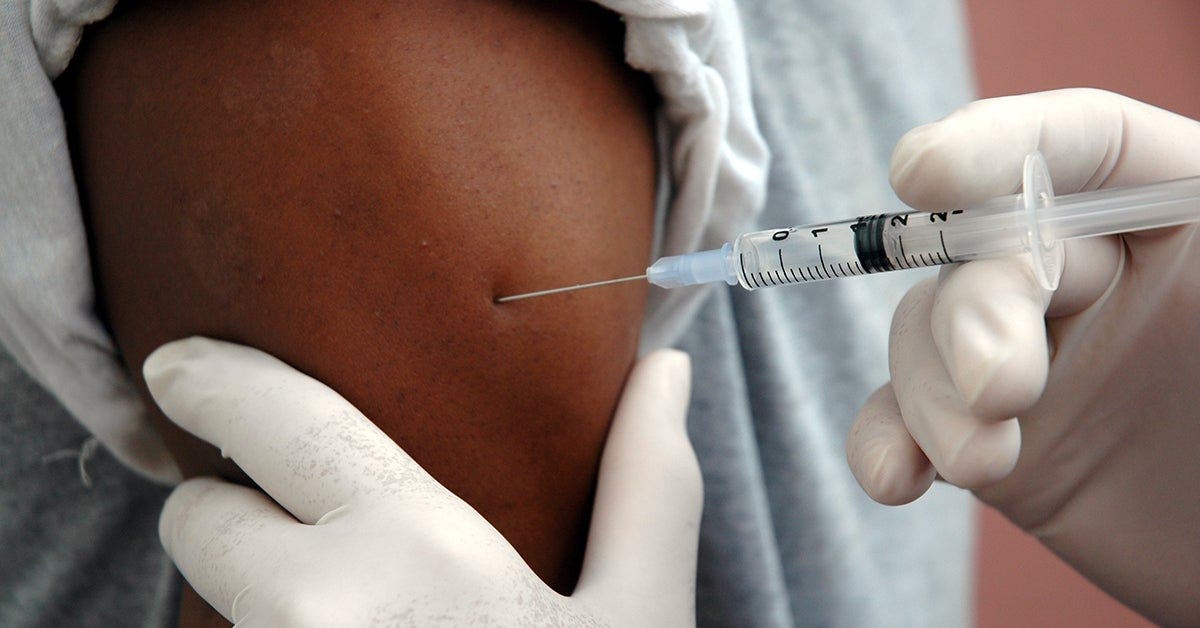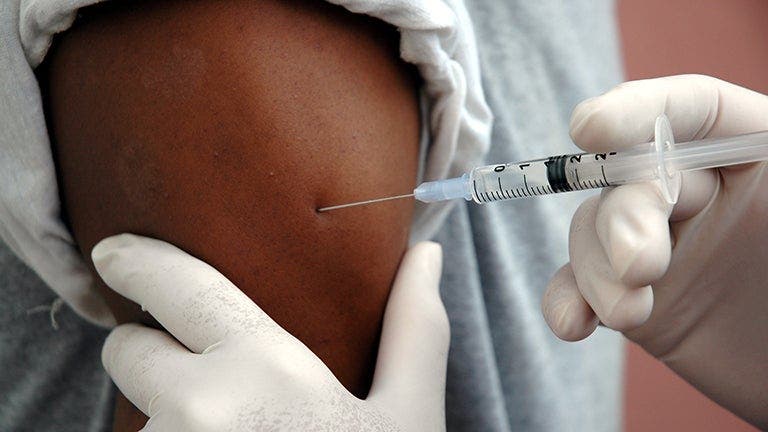COVID-19 and Body Weight: What the Science Says So Far


With scientists working overtime to gather intel on COVID-19, keeping track of the headlines every day—much less figuring out what the news means for you—can be tricky. One day you’re hearing that the virus is particularly dangerous for people living in larger bodies. The next you’re hearing from a friend that a certain vaccine is way more effective than the others and that you should hold out for the “best” option. WW spoke with researchers working on the front lines to get the facts and answer your pressing questions about COVID-19 and body weight.
I’ve heard that people living in larger bodies tend to experience more severe COVID-19 symptoms than smaller-size people do. True?
Studies are finding that having a higher body weight does raise the risk of severe symptoms, hospitalization, and complications caused by the virus. In one analysis of nearly 400,000 people, those living in larger bodies had a 46% greater chance of testing positive and more than double the odds of being admitted to a hospital with serious symptoms, says study author Barry Popkin, PhD, a W.R. Kenan distinguished professor of nutrition at the University of North Carolina at Chapel Hill.
Based on this growing body of evidence, the Centers for Disease Control and Prevention (CDC) concluded that people with a BMI of 30 or above are at greater risk of severe COVID-19 illness.
The science is less concrete regarding people whose BMI values fall between 25 and 30; to date, the CDC has determined that people with BMIs in this range may be more likely to develop serious symptoms of COVID-19. A large-scale population study analyzing data on more than 330,000 adults points to a general trend of increasing COVID-19 hospitalization with increasing BMI.
Do these studies prove that coronavirus is harmful to larger bodies?
With an acknowledgement that BMI (short for Body Mass Index) offers only an estimation of a person’s health risk and is not a perfect or complete tool, the existing research indicates that people living with larger bodies are more vulnerable to the virus, Dr. Popkin says. The mechanisms behind this relationship still aren’t fully understood—one theory is that excess adipose (fat) tissue may suppress key components of the immune system, which could make it harder to fight off COVID-19, he says.
People living with a BMI higher than 30 also are more likely to have underlying medical conditions—such as type 2 diabetes—associated with an increased likelihood of severe COVID-19 symptoms. In addition, higher body weight is correlated with reduced lung capacity, a particular concern with COVID-19. “This disease attacks your lungs, so you’re dealing with loss of breath,” Dr. Popkin says.
How well do doctors respond to COVID-19 symptoms in people with larger bodies?
Quality of care is a legitimate concern, Dr. Popkin says, explaining that cultural weight bias is intertwined with physical risk factors concerning COVID-19. Research shows that doctors, nurses, and other healthcare providers may treat people living in larger bodies differently because of stigma attached to weight, spending less time listening to concerns or mistakenly assuming symptoms are caused by body weight alone. When it comes to COVID-19, some experts are concerned that healthcare professionals may not monitor symptoms as carefully in people living in larger bodies, potentially raising the risk of complications.
Because of personal experiences with discriminatory weight stigma, people living in larger bodies may have less trust in healthcare professionals and may delay or avoid seeking healthcare. For example, someone may put off seeing their physician about a cough, or hesitate to go to the emergency room for shortness of breath.
How can I use all this information to better support my health?
First things first: Get a vaccine as soon as you are eligible and able, says Jennifer Lighter, MD, a hospital epidemiologist at NYU Langone Health. Once you are fully vaccinated, the CDC recommends continuing to wear a well-fitted mask and staying 6 feet apart from anyone who isn’t vaccinated (or whose vaccination status is unknown). The CDC also advises washing your hands often and limiting exposure to crowds and poorly ventilated public spaces.
Not yet fully vaccinated? Along with following up-to-date CDC safety guidelines, continue to wear a mask and distance from others—even those who are vaccinated. Researchers still aren’t sure whether people who are fully vaccinated and asymptomatic are able to carry and transmit the virus to other people.
If you’re exposed to someone who has COVID-19 or if you develop symptoms, contact your healthcare provider ASAP. Signs to watch out for include fever of 100.4°F or higher; persistent chest pain or pressure; cough or shortness of breath; gray, blue, or pale lips or nail beds; unusual confusion; and sore throat, muscle aches, and/or diarrhea. To reduce the possibility of a healthcare provider brushing aside your symptoms, it may help to request a COVID-19 test directly at the start of your visit, Dr. Lighter advises. Seek a second opinion if your concerns aren’t adequately addressed. All patients deserve to have their symptoms taken seriously.
To learn more about the challenges of medical weight stigma and find support for navigating medical settings, check out the Obesity Action Coalition, a nonprofit group dedicated to helping people in their journey toward better health by providing education and advocacy.
Are the COVID-19 vaccines equally effective for people of different body sizes? Should I opt for one type over another?
Research demonstrates that the three vaccines available as of April 2021 have the same efficacy across different body sizes, says Lee Riley, MD, a professor of infectious diseases and vaccinology at University of California, Berkeley, School of Public Health.
That aside, is one vaccine “better” than another? Here’s the deal: Regardless of body size or BMI, the vaccines administered in two doses—those manufactured by Pfizer and Moderna—elicit a greater antibody response compared with the single-dose Johnson & Johnson vaccine, Dr. Riley says. Studies show that after two doses, the Pfizer and Moderna vaccines have a 94% to 95% efficacy rate against symptomatic COVID-19, while the Johnson & Johnson efficacy rate is 72%.
That being said, all three vaccines are 100% effective at preventing the most severe outcomes of COVID-19: hospitalizations and deaths, Dr. Riley says. This means in the event you develop symptomatic COVID-19 after getting jabbed, vaccination essentially eliminates the risk of life-threatening complications.
Note that many people experience side effects such as fatigue, headache, or low fever after receiving a COVID-19 vaccine—in most cases, these are normal signs that the body is building immunity to the virus, the CDC explains. Side effects are usually mild and last no more than a few days. Consult with your doctor if you are concerned about any side effects you’re experiencing. But rest assured: The vaccines themselves cannot cause COVID-19.
The CDC endorses all three available vaccines and does not recommend one type or manufacturer over another. Getting vaccinated, period, is an important step you can take to protect yourself from COVID-19.
Once I'm vaccinated, how concerned should I be about my immunity fading?
Antibodies will dwindle over time. Researchers are still figuring out exactly how long COVID-19 vaccines provide protection against the virus. Based on existing immunizations, the range appears to be at least 10 months, Dr. Riley says, noting that the vaccines “may work for much longer.” The answer depends to a certain extent on whether today’s vaccines are effective against emerging variants of the virus—another matter still being investigated.
If you are concerned about your vulnerability to the virus, you may also consider asking your doctor about getting your antibody levels checked, Dr. Riley says. Depending on your result, another dose of the vaccine may be warranted.
--
This article was reviewed for accuracy by members of the WW Science Team in April 2021. Public health recommendations concerning COVID-19 continue to evolve as researchers learn more about the virus and vaccines. The information in this article might not reflect the latest guidelines. For up-to-date information on COVID-19, visit the CDC website.
--
Sharon Liao is a freelance writer and editor specializing in health, nutrition, and fitness. She lives in Redondo Beach, California.
